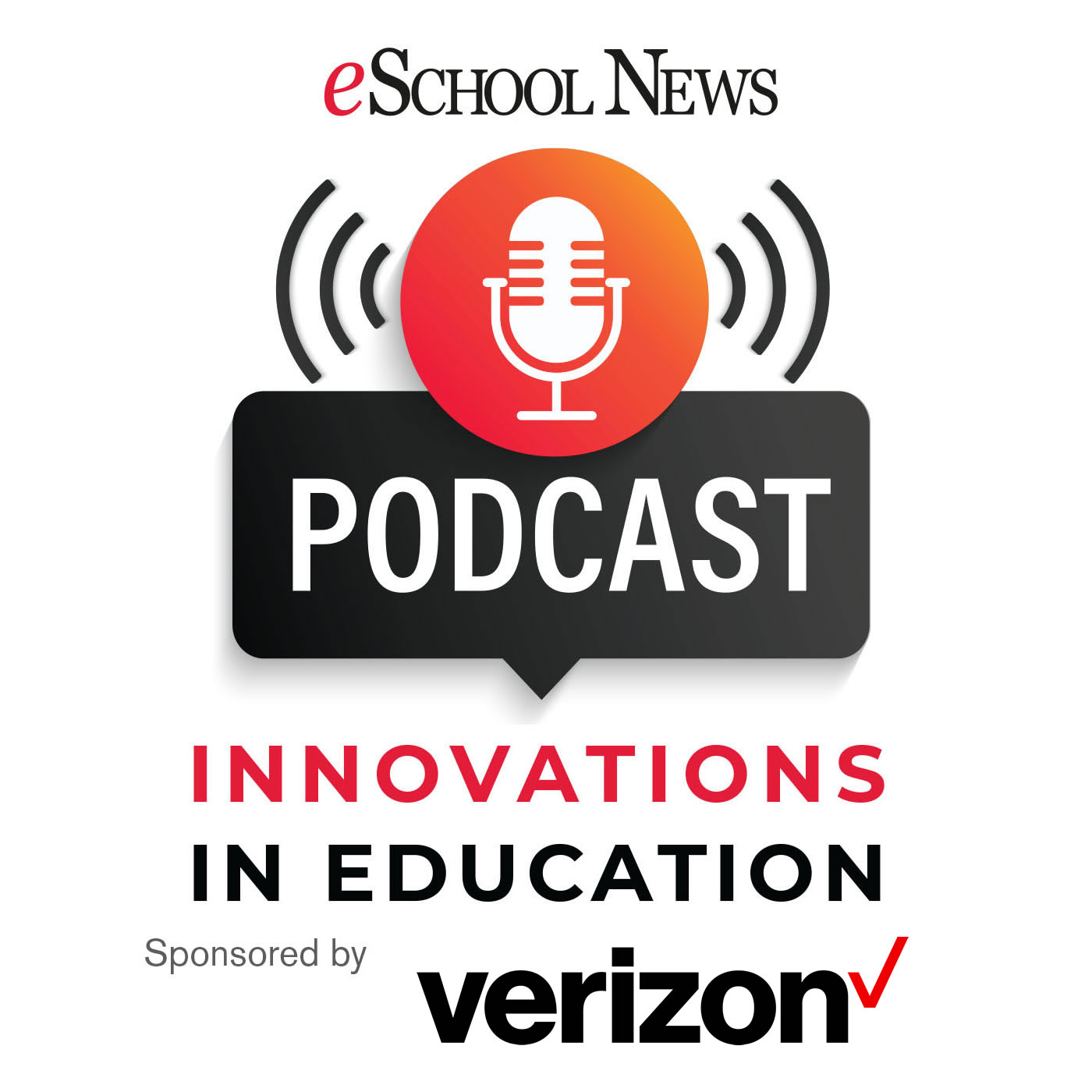Episode Transcript
Kevin Hogan
This episode is brought to you by Lexia, Lexia, a Cambium learning group. Company is the structured literacy expert. For nearly 40 years, the company has focused solely on literacy and today provides science of reading based solutions for both students and educators. With robust offerings for differentiated instruction, personalized learning assessment and professional learning. Lexia helps more learners read, write and speak with confidence. For more information, visit www.lexialearning.com. OK. Hello and welcome to this specially sponsored edition of Innovations in Education. I'm your host, Kevin Hogan. I'm the content director for E School News, and I'm happy you found us. Today, we're looking back at a recent E school News webinar titled Dyslexia and Instructional Equity. A conversation for school administrators where experts delved into the challenges of providing effective instruction for students with dyslexia. I had the pleasure to zoom with Doctor David Hufford. He's the executive director at the Center for Reading. Octavia Gray. She is an associate education advocate at Lexia. And an audience of more than 100 educators. Together, they discussed the systemic challenges in education, the significance of the science of reading. And the necessity for instructional equity. What follows are some key takeaways from the discussion. To listen to the full conversation, which I highly recommend. Go up to the webinar tab on E school news and Scroll down. 1st Doctor Hufford emphasized the importance of the science of reading when it comes to tackling dyslexia. And which encompasses various skills like phonological processing. Decoding fluency and comprehend. He highlighted the need for educators at all levels to be trained in this scientific approach to literacy instruction in order to improve reading outcomes for students. Here's a snippet.
Dr. David Hurford
For me, the major issue today, I think you know we have people who are interested in education. We have people who want to be teachers who. Their heart has always been to help kids, you know, learn and you know, the major problem has been essentially that we haven't been teaching the science of reading, and I'm going to spend a little bit of time in the next question kind of answering, you know, what the science of reading is, because a lot of people don't get that. They think it's some kind of curriculum or this notion of what, you know, some conspiracy theories and it it just isn't so. I want to talk a little bit about that. But the major problem in education today is that pre service teachers, for the most part, I mean, now we're starting to change to some extent. That, but most teachers aren't really taught in the science of reading. They're not really taught what science is, how to evaluate it, how to read it, which isn't their job. But they haven't been taught what we've learned through the science of reading to help our kids become comp readers. And that's a major problem because then they get out. Into the field, and they're like, at least my experience over the last 30 years of doing in. Wish is that teachers are like, why didn't we learn this when I was in school? I find this very irritating that I didn't learn this. Why, why, why? And I I would say in the very beginning I was more politically correct and I'd say, well, maybe ask your instructors. But now I just say because you weren't taught. And that's obviously Louisa most started. The letters program because she realized that people aren't being taught and, you know we need for those things to happen so.
Speaker
And.
Dr. David Hurford
You know, we want teachers to be the best prepared and teachers want to be as highly prepared to teach kids how to read. And that's just something we're struggling with. So fact of the matter is if pre service teachers were being trained and structured literacy, what the mechanics of reading are, what we need to do to help kids. Learn how. To read, they would have much greater success in helping students become competent readers, and the reading failure rate would plummet. So I I think right now it's very, very exciting to be in this space because we've have a lot of people that are listening and paying attention and. Actually, being convinced there's other ways to teach reading than the way that we've been doing it for the last 50 years, and most teachers now are saying just I get it. I get it, man, I understand. I agree with you. Teach me how. To do it.
Kevin Hogan
Octavia went on to highlight. The critical aspect of instructional equity. She stressed the need for every student to have access to high quality instruction tailored to their individual needs, regardless of their background or ability. This means accommodating diverse learning styles. Cultural backgrounds, as well as linguistic abilities. Have a listen.
Octavia Gray-Essex
When you say equitable instruction, to me, that means that each and every individual child has an opportunity for improved learning outcomes. And that's without regard to race, language, disability or the demographic area in which they reside. And so it's very, very important that when we talk about effective inclusive. Instruction for students with dyslexia, though we have to understand their unique learning needs, and we have to empower teachers to employ the teaching strategies that accommodate those needs. So when I think about Equitable instruction, I also think about all kids having access to Tier 1 core instruction. So I know that when we talk about dyslexia, we talk about intervention and and acceleration and and unfortunately sometimes remediation, which that's something a little bit different that we won't get into right at this moment. But it's very important to understand. That we have to really understand culturally responsive instruction, linguistically, accommodating instruction like, you know. What does that mean? What does it look like? And we have to approach it with an asset based mindset and so understanding and believing that what kids come with is an actual strength and not penalizing them for not being on grade level or whatever that might be. And so when I think about equitable instruction and what that looks like, it means meeting every child where they are and giving them what they deserve civil right to get to where they. To be.
Kevin Hogan
Both speakers address systemic challenges in education, such as teacher recruitment and retention, outdated policies and, of course, inadequate funding. These challenges contribute to the under identification of dyslexia and disparities in access to quality instruction. They also both acknowledge the challenges in implementing evidence based reading practices. Particularly when it comes to teacher preparation programs. Education colleges as well as school systems and their other professional development methods. And now, despite widespread recognition of the importance of the science of reading, there are still barriers to ensuring that teachers receive adequate training in those methods. Addressing these challenges requires a coordinate. Effort to reform teacher preparation programs provide ongoing professional development and allocate resources to support evidence based reading instruction for all students. Here's what they had to say.
Dr. David Hurford
Parents want this to happen. Teachers are desperate to learn how to teach reading properly. There's unequivocally no doubt about that. Legislators want it to happen. Everybody on the planet want it, wants it to happen. The holdout has been colleges of education, who have not been all that interested. And learning about the science of reading. And no, that's why, like if people said to me, hey, you're in charge of education now what? What would it look like from the bachelors level all the way up to the doctoral level? There'd be a heavy infusion of how you understand science, you know, in psychology, we train scientist practitioners because when. People get out and our practitioners, we want them to be reading the scientific literature so they're not bamboozled into doing something that's not going to be appropriate. But that happens, unfortunately in education because we don't teach the science piece of it. Right. And so I'm going to answer a very specifically that question in Kansas, this is how we solved it. We created Senate Bill 438, check it out, Senate Bill 438. What that does it says you will no longer teach anything that's not based in science. Then college is a vacation that's gone. If it's not based in science, you don't get to teach it, and people are screaming. What about academic freedom? You don't have academic freedom to teach the non science based material. I mean, academic freedom and tenure came about because we wanted people to actually teach based on science, not to come up with ideas that weren't based in science. And we wanted to protect those people, even if society didn't like what they were saying about the science. Right. So if you look at Senate Bill 438, you'll see that they have to teach the science of reading. They are no longer allowed to teach the three queuing system in any shape or form, balanced literacy caulkins font has been hell whatever way you want to look at it. Those methods do not. Work. How do we know that 40% of our nation's kids can't read? That's how we know that. And you know you. You look at kids who aren't white kids, it hurts them even more. So when you talk about equity, equity, equitable teaching, sorry, I'm getting excited here. But if you want to talk about equity. You got to teach what we know is true based in science. And so the three queuing system in all shape or form is outlawed in Kansas. You no longer get. To do that, we're creating centers of excellence for parents to go to, to get their kids evaluated, get extra help to infuse professionals into the school system to help teachers are saying, hey, I get it. I I told you, I get it. Teach me how to do it. I want Octavia in my classroom to show me how to do it.
Speaker
Yes.
Octavia Gray-Essex
And and I am in Kansas. Uh. What a coincidence. So no, because I am a graduate teaching fellow for the College of Education in case State and I I supervise and support pre service teachers.
Speaker
Yeah.
Octavia Gray-Essex
Going into the classroom and so as they are making that. Yes, it's been very interesting to see how. It's there and they want it, but there are so many pieces that still need to be put in place, right? Easier said than done. So the most important thing is, like you said, it is now the law. And so it has to take place. But I think in terms in in order to get those systems up and going, there's a lot of things, don't you think that have to be replaced? There's a lot of. Outdated things. So even though when we say, OK, here's the way it should be done, how are we providing the tools and the resources and the experiences if I am a pre service teacher going into a class? This room to get my hours and the teacher's classroom that I'm going into. I know more about the science of reading than she does. We have had some very interesting conversations, you know, about how to approach that. So I I think it's a beautiful thing. It is complicated, but I think it's great. And and eventually everyone's just going to have to get on board, right. And so I call what we have now kind of this coalition of the willing, but I totally agree with you. Is there an option when we talk about equity and kids not being able to read and and when we say ohh, this is hard for adults and this is hard for them and they have to make the shift. Well, you know that nothing is is more difficult than not being able to read.
Kevin Hogan
Once again, I encourage you to go up to eschoolnews.com and click on the webinar tab and find the title, dyslexia and instructional equity. A conversation for school administrators. And listen to the whole thing. I promise it will be. Worth your while. So thank you for joining us on this special edition of Innovations and Education, which was sponsored by Alexia. Stay tuned and follow us for more insightful conversations on the best in Ed Tech every month. Until next time, take.
Speaker
There.
Kevin Hogan
This episode is brought to you by Lexia, Lexia, a Cambium learning group. Company is the structured literacy expert. For nearly 40 years, the company has focused solely on literacy and today provides science of reading based solutions for both students and educators. With robust offerings for differentiated instruction, personalized learning assessment and professional. Learning. Lexia helps more learners read, write and speak with confidence. For more information, visit www.lexialearning.com.


